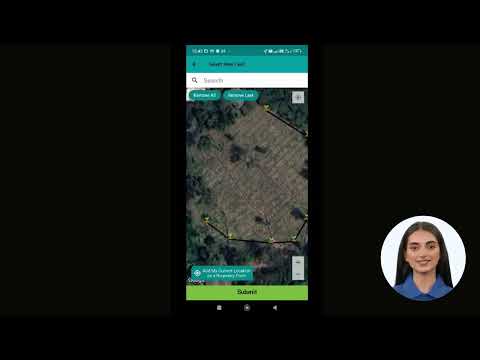North Carolina’s Biosolid Dilemma: Balancing PFAS Risks and Agricultural Benefits
“Less than 1% of North Carolina’s agricultural land receives biosolid applications, despite the practice’s widespread scrutiny.”
In the verdant fields of North Carolina, a complex environmental and agricultural challenge is unfolding. We’re witnessing a delicate balancing act between the benefits of biosolid application on farmland and the growing concerns over PFAS contamination. This issue touches on crucial aspects of sustainability, environmental protection, and agricultural productivity in our state.
Understanding Biosolids and Their Use in North Carolina
Biosolids, the treated sewage sludge resulting from wastewater treatment processes, have long been utilized as a valuable resource in agriculture. In North Carolina, this practice has been ongoing for decades, with farmers incorporating biosolids into their soil management strategies to enhance fertility and improve crop yields.

However, it’s crucial to note that biosolid application is not a widespread practice across the state. In fact, less than 1% of North Carolina’s agricultural land receives biosolid applications. This limited use underscores the importance of understanding both the benefits and potential risks associated with this practice.
The Agricultural Benefits of Biosolids
Biosolids offer several advantages to farmers and the agricultural sector:
- Soil Enrichment: Biosolids can improve soil structure and increase organic matter content.
- Nutrient Recycling: They provide essential nutrients like nitrogen and phosphorus, reducing the need for synthetic fertilizers.
- Cost-Effective: For many farmers, biosolids represent an affordable soil amendment option.
- Waste Reduction: Using biosolids in agriculture helps manage waste from wastewater treatment plants.
Stuart Beam, a farmer in western North Carolina who has used biosolids since the 1980s, highlights these benefits: “If you’re a permitted farm and you’re having biosolids applied, then more than likely you are having regular soil testing done at no cost. You’re having your pH balanced regularly, and you’re getting some fertilizer value out of it.”
The PFAS Concern: A Growing Environmental Challenge
While the agricultural benefits of biosolids are clear, the presence of PFAS (per- and polyfluoroalkyl substances) in these materials has raised significant environmental and health concerns. PFAS, often referred to as “forever chemicals,” are synthetic compounds used in various industrial and consumer products. Their persistence in the environment and potential health risks have brought biosolid application under increased scrutiny.
“North Carolina’s biosolid dilemma involves balancing PFAS risks across three key areas: soil, water, and food quality.”
The North Carolina Department of Environmental Quality (NCDEQ) acknowledges the potential risks associated with PFAS in biosolids. “NCDEQ’s Division of Water Resources is aware that biosolid waste can contain PFAS and has the potential to contaminate surface waters, groundwater, and reservoirs,” the agency stated. However, they also emphasize that more research is needed to fully understand the impacts and determine appropriate mitigation strategies.
Regulatory Framework and Farmer Responsibilities
In North Carolina, the application of biosolids on farmland is a regulated practice. Farmers must adhere to strict guidelines to ensure safe and responsible use. These regulations include:
- Waiting periods before harvesting crops or grazing livestock on treated land
- Regular soil testing and pH balancing
- Limitations on application rates and frequency
- Monitoring and reporting requirements
Beam explains, “We have to follow very tight regulations. There are withdrawals. We cannot graze livestock on treated ground for 30 days, and we cannot harvest any forage or hay for 30 days. If we are applying biosolids to land intended for food crops, we have to wait 20 to 38 months before harvesting.”
The NCDEQ Biosolids Study: Seeking Answers
To address the growing concerns over PFAS in biosolids, the NCDEQ conducted an initial biosolids study in 2023 and 2024. This study involved sampling sewage sludge applied to dedicated fields across the state. The agency plans to release its findings later this year, which will help guide future policies and practices regarding biosolid use in North Carolina.
The study aims to provide crucial data on:
- PFAS levels in biosolids applied to North Carolina farmland
- Potential impacts on soil and water quality
- Risks to crop uptake and food safety
- Efficacy of current regulations and potential need for additional measures
The Utility Perspective: Caught in the Middle
Wastewater treatment utilities find themselves at the center of this complex issue. These facilities are responsible for processing human and industrial waste, creating the biosolids that are then used in agriculture. However, they face significant challenges in addressing PFAS contamination.
Ed Buchan, strategic planning manager at Raleigh Water, points out, “We don’t generate PFAS. It just passes through our system and becomes concentrated in biosolids.” This highlights a critical aspect of the problem: PFAS enter the wastewater stream from various sources, making it difficult for utilities to control or eliminate them entirely.
Some utilities, like OWASA (Orange Water and Sewer Authority) serving Chapel Hill and Carrboro, have proactively begun testing biosolids for PFAS and monitoring potential impacts. Katie Hall, public information officer for OWASA, expresses cautious optimism: “We’re hopeful that when we treat our drinking water for PFAS, we’ll also see a reduction in PFAS in wastewater effluent and biosolids — but we just don’t know yet.”
Alternatives to Land Application: Limited Options
If land application of biosolids were to be restricted or banned in North Carolina, utilities and municipalities would face significant challenges in managing this waste stream. The primary alternatives to land application are:
- Landfill Disposal: While this is an option, it comes with its own set of problems. Landfills across the Southeast are filling up, and the costs of waste disposal are rising. This could result in higher utility rates for consumers.
- Incineration: North Carolina has four operating sewage sludge incinerators located in Greensboro, Asheville, High Point, and Concord. However, incineration is expensive and not proven to be a safe method for eliminating PFAS.
Both of these alternatives present economic and environmental challenges, underscoring the complexity of the biosolids issue.

The Need for More Research and Testing
As North Carolina grapples with this complex issue, the call for more comprehensive research and testing is growing louder. Keith Larick, natural resources director at the North Carolina Farm Bureau, emphasizes this need: “We really need more testing. Farmers need to know that if they accept biosolids, they’re safe.”
Areas where additional research is crucial include:
- Long-term impacts of PFAS accumulation in soil and groundwater
- Effectiveness of different treatment methods in reducing PFAS levels in biosolids
- Potential for crop uptake of PFAS and implications for food safety
- Development of cost-effective PFAS removal technologies for wastewater treatment
Balancing Act: Environmental Protection and Agricultural Needs
The biosolids dilemma in North Carolina exemplifies the complex balancing act between environmental protection and agricultural needs. On one hand, biosolids offer valuable benefits to farmers and help address waste management challenges. On the other, the presence of PFAS raises significant environmental and health concerns that cannot be ignored.
As we navigate this issue, it’s crucial to consider:
- The economic impact on farmers and utilities
- Long-term environmental sustainability
- Public health and safety
- Food security and agricultural productivity
Finding a solution will require collaboration between farmers, utilities, regulators, and environmental scientists. It may also necessitate exploring innovative technologies and practices to address PFAS contamination while preserving the benefits of biosolid use in agriculture.
The Role of Technology in Monitoring and Management
As we grapple with the complexities of biosolid management and PFAS contamination, technology plays an increasingly important role in monitoring and managing agricultural practices. Advanced tools like satellite-based crop health monitoring and AI-driven advisory systems can help farmers optimize their resource use and minimize environmental impact.
For instance, platforms like Farmonaut offer satellite-based farm management solutions that can assist in:
- Monitoring crop health and soil conditions
- Optimizing irrigation and fertilizer use
- Tracking and managing resources efficiently
While these technologies don’t directly address PFAS contamination, they can help farmers make more informed decisions about land management and resource allocation, potentially reducing reliance on biosolids in some cases.
Looking to the Future: Potential Solutions and Strategies
As North Carolina continues to navigate the biosolids dilemma, several potential solutions and strategies are being explored:
- Source Reduction: Efforts to reduce PFAS at their source, including phasing out these chemicals in consumer and industrial products, could help mitigate contamination in wastewater and biosolids.
- Advanced Treatment Technologies: Research into more effective PFAS removal technologies for wastewater treatment could help reduce contamination levels in biosolids.
- Risk-Based Regulations: Developing more nuanced, risk-based regulations for biosolid application could help balance environmental concerns with agricultural benefits.
- Alternative Soil Amendments: Exploring and promoting alternative organic soil amendments could provide farmers with options beyond biosolids.
- Precision Agriculture: Leveraging advanced technologies for more precise farm management could help optimize resource use and potentially reduce reliance on biosolids.
Comparative Analysis: Biosolid Management Options in North Carolina
| Management Option | Estimated % of Biosolids Managed | Potential Benefits | Potential Risks | Estimated Cost ($/ton) | Regulatory Requirements |
|---|---|---|---|---|---|
| Land Application | 60-70% | Soil enrichment, nutrient recycling | PFAS contamination, potential groundwater pollution | $30-$50 | Strict testing, permitting, application restrictions |
| Landfill Disposal | 20-30% | Containment of potential contaminants | Landfill capacity issues, potential leachate concerns | $70-$100 | Landfill regulations, potential future restrictions |
| Incineration | 5-10% | Volume reduction, potential energy recovery | Air pollution, high energy costs, PFAS concerns | $100-$150 | Strict air quality regulations, emissions monitoring |
This table provides a clear overview of the current biosolid management landscape in North Carolina, highlighting the trade-offs between different approaches. As we can see, each option comes with its own set of benefits, risks, and regulatory challenges. The significantly lower cost of land application explains its prevalence, but the potential environmental risks associated with PFAS contamination are driving the need for alternative solutions and more stringent regulations.
The Role of Public Awareness and Engagement
As North Carolina grapples with the biosolids dilemma, public awareness and engagement play a crucial role in shaping policies and practices. Educating the public about the benefits and risks associated with biosolid use, as well as the challenges faced by farmers and utilities, is essential for fostering informed discussions and decision-making.
Key aspects of public engagement include:
- Transparent communication about biosolid management practices and PFAS testing results
- Community forums and public hearings to gather input on proposed regulations or changes in practices
- Collaboration between universities, research institutions, and community organizations to disseminate accurate information
- Encouraging consumer awareness about PFAS in everyday products to support source reduction efforts
The Economic Implications of Changing Biosolid Practices
Any significant changes to biosolid management practices in North Carolina will have far-reaching economic implications. These could include:
- Increased costs for wastewater treatment and biosolid disposal, potentially leading to higher utility rates for consumers
- Economic challenges for farmers who rely on biosolids as a cost-effective soil amendment
- Potential job losses or shifts in employment within the wastewater treatment and agricultural sectors
- Investments in new technologies and infrastructure to address PFAS contamination
Balancing these economic considerations with environmental and public health concerns is a key challenge for policymakers and stakeholders in North Carolina.
Leveraging Technology for Sustainable Agriculture
As we navigate the complexities of biosolid management, leveraging advanced agricultural technologies can help farmers optimize their practices and potentially reduce reliance on biosolids. Platforms like Farmonaut offer valuable tools for precision agriculture, including:
- Satellite-based crop health monitoring
- AI-driven advisory systems for optimized resource management
- Weather forecasting and crop management strategies
These technologies can help farmers make data-driven decisions about soil health, irrigation, and fertilizer use, potentially mitigating some of the challenges associated with changing biosolid practices.
For more information on how technology can support sustainable farming practices, visit Farmonaut’s API or check out their API Developer Docs.
Conclusion: A Path Forward for North Carolina
North Carolina’s biosolid dilemma represents a complex intersection of environmental, agricultural, and public health concerns. As we move forward, it’s clear that a multifaceted approach will be necessary to address the challenges associated with PFAS contamination while preserving the benefits of biosolid use in agriculture.
Key steps for the future include:
- Continued research and monitoring of PFAS levels in biosolids, soil, and water
- Development of more effective PFAS removal technologies for wastewater treatment
- Exploration of alternative soil amendments and agricultural practices
- Ongoing collaboration between farmers, utilities, regulators, and environmental scientists
- Public education and engagement to foster informed decision-making
- Integration of advanced agricultural technologies to optimize resource use and minimize environmental impact
By addressing this issue thoughtfully and proactively, North Carolina can work towards a solution that protects public health and the environment while supporting the state’s vital agricultural sector.
FAQ Section
- What are biosolids?
Biosolids are nutrient-rich organic materials resulting from the treatment of sewage sludge at wastewater treatment facilities. - How are biosolids used in agriculture?
Biosolids are applied to farmland as a fertilizer and soil amendment, providing essential nutrients and improving soil structure. - What are PFAS?
PFAS (per- and polyfluoroalkyl substances) are a group of synthetic chemicals used in various industrial and consumer products. They are known as “forever chemicals” due to their persistence in the environment. - Why are PFAS in biosolids a concern?
PFAS in biosolids can potentially contaminate soil, water, and crops, posing risks to environmental and human health. - What regulations govern biosolid use in North Carolina?
North Carolina has strict regulations on biosolid application, including waiting periods before harvesting crops or grazing livestock on treated land, and regular soil testing requirements. - What alternatives exist for biosolid management?
Alternatives include landfill disposal and incineration, though these options come with their own set of environmental and economic challenges. - How can farmers adapt to potential changes in biosolid availability?
Farmers can explore alternative soil amendments, implement precision agriculture techniques, and leverage technologies like satellite-based crop monitoring to optimize resource use. - What is being done to address PFAS contamination in North Carolina?
The North Carolina Department of Environmental Quality (NCDEQ) is conducting studies on PFAS in biosolids and exploring potential mitigation strategies.
Earn With Farmonaut: Affiliate Program
Earn 20% recurring commission with Farmonaut’s affiliate program by sharing your promo code and helping farmers save 10%. Onboard 10 Elite farmers monthly to earn a minimum of $148,000 annually—start now and grow your income!





















